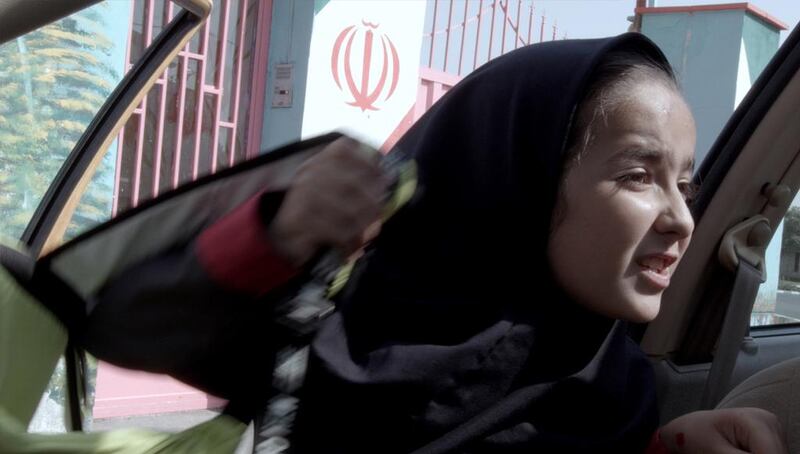Taxi is the third film Jafar Panahi has made in secret and it is his most accessible.
The film, which has had its world premiere at the Berlin film festival, comes from the Iranian director who, in 2010, was banned from filmmaking for 20 years and given a six-year sentence after being convicted of making propaganda against the Iranian state.
It’s a sentence that has never been applied, so the 54-year-old has been able to take advantage of technology and making films in secret that are then smuggled out of the country to an international audience.
In 2011, when making an appeal against the sentence, Panahi used the vacuum caused by the legal action to make the rather devilishly titled This Is Not a Film, which screened at the Cannes International Film Festival. The appeal upheld in 2013, when he made Closed Curtain, about two fugitives hiding in a house in the Caspian Sea.
Taxi opens with an image that looks as though it's been taken from a computer game: a camera is placed behind the windscreen, looking forward into traffic. Tehran is bustling. The camera is turned around when a passenger who gets into the car thinks it's an anti-theft device.
It soon becomes apparent that the driver is Panahi, and he is playing himself.
Turning the vehicle into a mobile film studio, all the action takes place in or around it. It's a technique that has become a trope of Iranian cinema, with the most famous example being the Abbas Kiarostami's 2002 social drama Ten.
Panahi is not much of a driver, he struggles to get his various customers, including a mugger, a teacher, a man who has been in a bike accident and his wife, two ladies with a goldfish, his niece and florist, to their desired destination. He always refuses to charge.
What he does have is a goofy smirk that makes him look like a teddy bear, as the audience learns much about the human condition, the need for security, human cunning and different belief systems through his various fares.
As is often the case, Panahi breaks the fourth wall: the characters are aware they are in a film. Some of them speak straight to the camera, defying censors and conservative rule by openly discussing current affairs.
At one point there is mention of Ghoncheh Ghavami, a London-based law graduate who was arrested in Iran for protesting against the rule that forbids women from spectating at men’s sporting events in Iran.
There is also discussion on the nature of rules about making films, as his niece is partaking in a school project where she has to shoot a short film. She explains the requirements and tries to intervene in the action to make the film “distributable”, scenes that seem to relate directly to the Iranian director’s own predicament.
So what drives Panahi to continue to make films under such arduous conditions? Banned from leaving Iran, apart from Hajj pilgramages or for medical treatment, and from doing interviews with the media, he sent the following written statement to Berlin:
“I’m a filmmaker,” he wrote. “I can’t do anything else but make films. Cinema is my expression and the meaning of my life.
“Nothing can prevent me from making films as when being pushed to the ultimate corners, I connect with my inner self and in such private spaces, despite all limitations, the necessity to create becomes even more an urge.
“Cinema as an art becomes my main preoccupation. That is the reason why I have to continue making films under any circumstances, to pay my respect and feel alive.”
The one sign of the ban on Panahi as a filmmaker is that there are no end credits, as officially Panahi cannot credit himself as director, nor does he want any of his cast and crew to get into trouble for helping him.
So instead, there is a general thank you, marking the end of a film that despite all the protestations and arguments, seems remarkably hopeful.
artslife@thenational.ae






